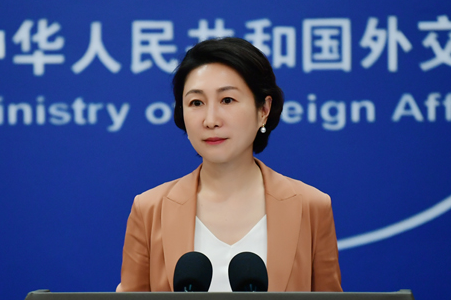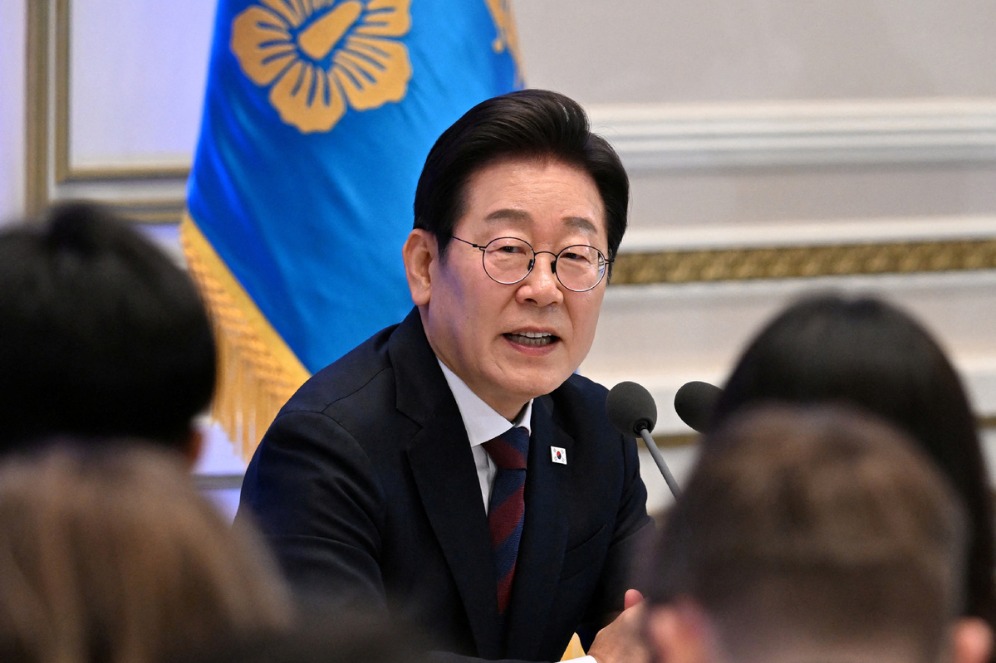Africa taps technology to bolster virus fight


As COVID-19 continues to cause health emergencies worldwide, normal working conditions have come to a grinding halt, necessitating an abrupt change in working styles.
As social distancing measures, lockdowns, quarantines and curfews stretch from weeks to months, enhanced technology has allowed workers around the world to provide their services without physically clustering together.
While staying at home has become the new norm, some offices have ensured continuity of production as employees work from home, relying on virtual meetings, cloud technology and online tools.
In China, officials and specialists from departments of health and customs held a videoconference on March 18 with representatives from 24 African countries and the World Health Organization to share information and experience on combating COVID-19.
Africa's virtual interaction is defining new models of conducting business.
For instance, a company in Nigeria has created the online COVID-19 Triage Tool, which allows users to self-assess their coronavirus risk and also offers remote medical consultations.
In South Africa, the government is using WhatsApp to run an interactive chat service about the coronavirus.
Egypt's broadband network has been leveraged to deploy telehealth solutions to 500 primary care units and facilitate buying and selling via e-commerce platforms such as Jumia, Otlob and OLX.
In trade transactions, there has been a sharp increase in countries such as Nigeria and Kenya in mobile money transactions compared with the physical exchange of paper money, to reduce the spread of the virus.
Early this month, following directives from the Central Bank of Kenya and Kenyan President Uhuru Kenyatta, Safaricom, the country's largest telecommunications provider, implemented a fee waiver on its leading mobile phone-based money transfer service, M-Pesa, to reduce the physical use of money.
The company announced that all person-to-person transactions under 1,000 Kenyan shillings ($9.40) would be free for three months.
In Ghana, the central bank directed mobile money providers on March 20 to waive fees on transactions of up to 100 Ghanaian cedi ($17.40).
Ghana's monetary body eased the "know your customer" requirements on mobile money, allowing citizens to use existing mobile phone registrations to open accounts with the major digital payments provider.
A variety of educational applications, platforms and resources have begun to yield fruit in Africa.
In late April, Egypt was identified as the country whose considerable investments in digital infrastructure have proved handy in dealing with the COVID-19 crisis.
According to the Africa Information& Communication Technologies Alliance, Egypt has deployed an e-learning platform and knowledge hub for seamless school courses, enabling up to a million students to take exams simultaneously.
Morocco, Rwanda and Zambia have established a system that reviews the education program content from private and public television channels offered to learners.
In Cote d'Ivoire, Morocco and Tunisia, negotiations are underway with mobile telecommunication providers to allow learners to access distance/online learning platforms and resources free of charge or at a reduced rate using mobile telephone networks.
In food and security, consumer satisfaction with online shopping and door-to-door deliveries is reducing social contacts, helping countries to manage the spread of COVID-19.
In Kenya, the Jumia Food app has been embraced for this purpose, whereas in Uganda, the Market Garden app, launched in 2018, is now popular for sales and delivery of fruits and vegetables.
Kenya is close to leveraging digital technologies through ongoing partnerships with 15 agriculture tech startups to enable farmers to overcome temporary coronavirus-related constraints, especially in remote areas.
However, the difficulty of accessing appropriate digital tools and low internet coverage continue to be a challenge in Africa. Therefore, technology to assist African countries in the fight against COVID-19, including faster and cheaper broadband, needs to be expanded further.
To fully utilize the virtual world, African governments need to collaborate with the private sector and civil society to synergize their solutions and avoid duplication of efforts against COVID-19.
Lewis Ndichu is a research and policy analyst at the Kenya-based Africa Policy Institute, and Shadrack Kuyoh is a legal and policy adviser at Williams Hill (SRC) Inc. The views do not necessarily reflect those of China Daily.

































